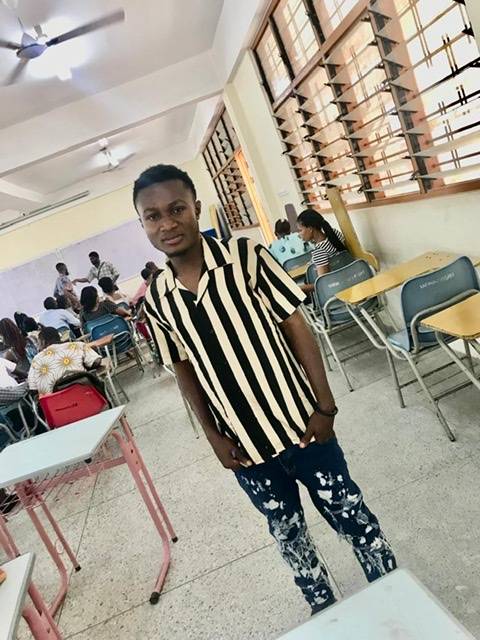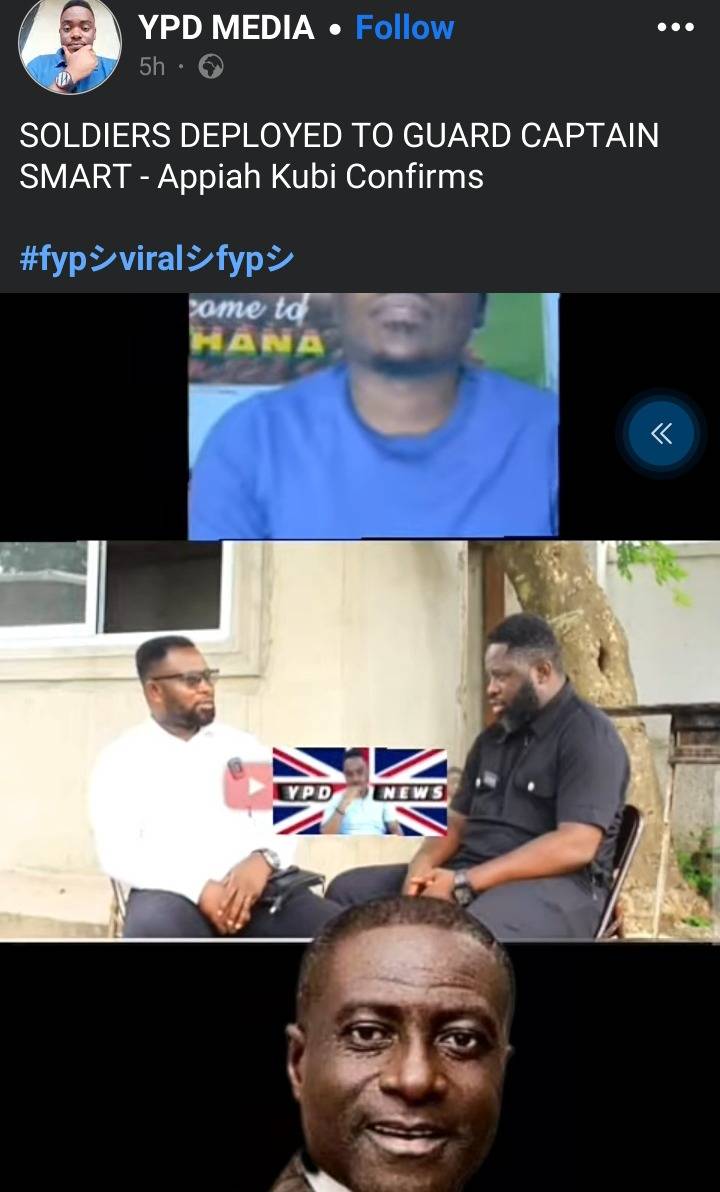In a recent interview, journalist Appiah Kubi revealed the extensive security measures surrounding Captain Smart, emphasizing that military personnel have been assigned to protect him. Kubi, who has collaborated closely with Captain Smart at both Angel TV and Onua TV, noted that during his visits to Smart's residence in the Greater Accra Region, he consistently observed military guards stationed there, underscoring the seriousness of the security arrangements in place.
Appiah Kubi, known for his dedication and professionalism, currently serves as a news presenter at Angel TV. He highlighted the importance of respecting Captain Smart, a figure he regards as highly significant in Ghana's media landscape. In his interview, Kubi stated, "Captain Smart is not just anyone; he has a considerable security presence. Military personnel have been deployed to safeguard his home." This statement reflects the heightened concerns regarding safety and security in the media industry, particularly for influential figures like Captain Smart.
Kubi further elaborated on his personal relationship with Captain Smart, detailing their long-standing professional connection that has spanned several years. “I’ve known Captain Smart for many years from our time at Angel TV and Onua TV. His courage is remarkable, and something I find hard to match,†he remarked. This personal insight adds depth to Kubi's comments, showcasing not only the professional respect he has for Smart but also a genuine admiration for his character and resilience.
Captain Smart, whose full name is Godsbrain Smart, is widely recognized as one of the most powerful media personalities in Ghana today. He has built a reputation for his outspoken nature and his ability to engage audiences on critical national issues. Currently, he hosts the Onua TV morning show, "Onua Makye," where he tackles a range of topics, from politics to social issues, often sparking important conversations among viewers.
The presence of military security around Captain Smart indicates the challenges faced by media personalities in Ghana, especially those who are vocal about contentious issues. Such protective measures suggest a response to potential threats that can arise from their work, especially in a landscape where media figures can attract both support and criticism. Kubi’s comments serve as a reminder of the risks associated with being an influential voice in the media, where expressing opinions can lead to significant backlash.
Furthermore, the discussion around Captain Smart's security highlights broader societal concerns regarding the safety of journalists and media professionals in Ghana. As the media plays a crucial role in democracy and public discourse, ensuring the safety of its members is vital for fostering a healthy environment where free expression can thrive. Kubi's insights can encourage a dialogue about the need for enhanced protection and support for journalists, particularly those who take bold stances on pressing issues.
In conclusion, Appiah Kubi's revelations about Captain Smart's extensive security arrangements underline the complexities of being a leading media figure in Ghana. Their shared history and professional bond add a personal layer to Kubi’s remarks, emphasizing the mutual respect and admiration that exists within the media community. As Captain Smart continues to influence public opinion through his work, the conversation around his safety serves as a critical reminder of the importance of protecting those who dare to speak out in the pursuit of truth and accountability.




No comments yet
Be the first to share your thoughts!